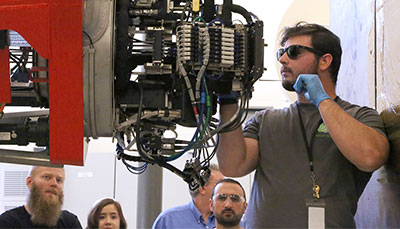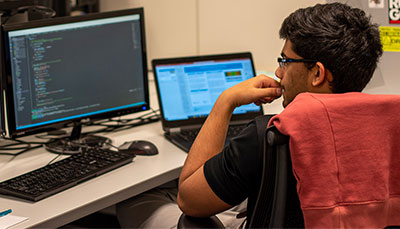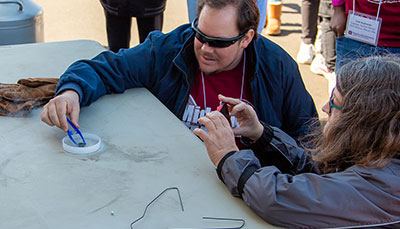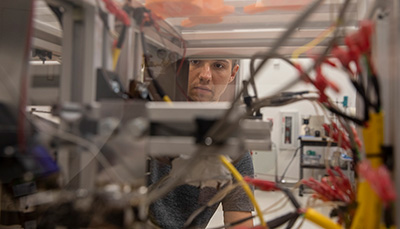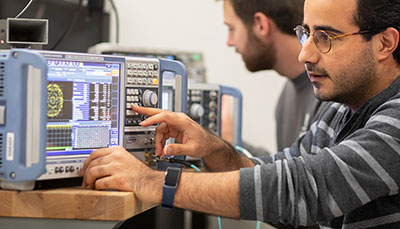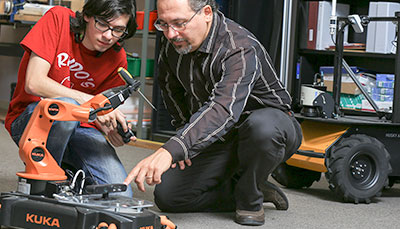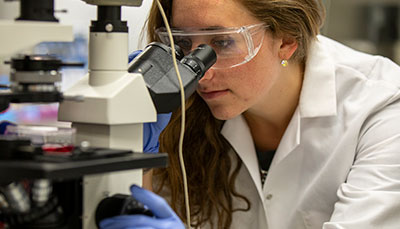Electrical Engineering, M.S.
College of Engineering and Computing
Prepare for a career in power systems, aerospace, automotive and industrial manufacturing, and more with an advanced degree in electrical engineering.
Our M.S. program requires coursework and a thesis. Undergraduates may be able to complete this in a shorter timeframe if they are eligible and take advantage of the accelerated degree program. This program may also be suitable for working professionals with a B.S. degree who wish to gain more in-depth knowledge.
Program Highlights
-
Specialty Area
Focus on wireless communications, power, energy and control, or electronic devices and materials.
-
Rigorous Program
Take 30 credit hours, with 24 hours of coursework and six hours of thesis preparation.
-
In-Demand Skills
Learn modern modeling and simulation software like Ansys High Frequency Structure Simulator and Keysight Advanced Design Systems.
-
Authentic Experiences
Get hands-on learning opportunities through the new radio frequency electronics lab and the modern industrial control lab.
Building Skills
Gain the professional and personal intelligence it takes to have a successful career.
-
Analytical Reasoning
Breaking down complex problems or situations to identify patterns, connections and solutions
Problem Solving
Identifying, analyzing and resolving problems or challenges using creative and effective strategies
Research
Gathering and analyzing information to increase knowledge or solve problems
-
Computer Modeling
Using simulations to analyze, predict and optimize performance, behavior or outcomes.
Troubleshooting and Analysis
Identify root causes, determine solutions and restore functionality or improve performance
Communication
Exchanging information and ideas through speaking, writing or other means of expression
Using your degree
Make your college experience the foundation for a successful future.
Potential Careers
- Electrical Engineer
- Electronics Engineer
- Hardware Engineer
- Systems Engineer
- Controls Engineer
Workplace Settings
- Automotive and Industrial Manufacturing
- Power Systems
- Aerospace
- Wireless Communication
- Radio Frequency Systems
- Computing
